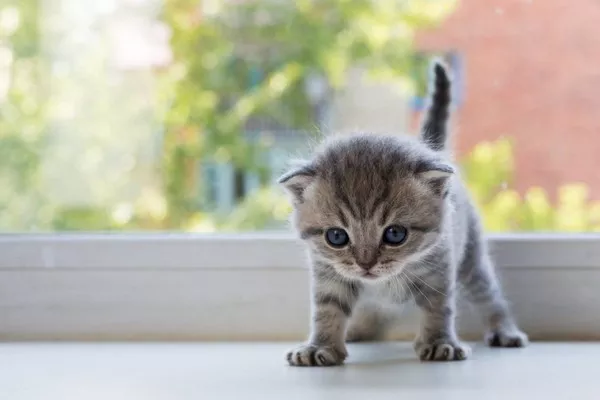The well-being and survival of newborn kittens are closely tied to the care and nurturing provided by their mother. However, certain circumstances may arise where kittens are orphaned or separated from their mother at a young age. In this article, we will explore the challenges faced by 2-week-old kittens without a mother and discuss the options available for their care and survival.
The Importance of Mother’s Care
The care provided by a mother cat is vital for the healthy development and survival of newborn kittens. Mother cats offer essential elements such as warmth, nutrition, grooming, and socialization, which are crucial for the kittens’ growth and well-being. The mother’s milk provides them with the necessary nutrients and antibodies to boost their immune systems.
Challenges Faced by Orphaned Kittens
When 2-week-old kittens are separated from their mother, they face several challenges that require immediate attention:
a. Nutrition: Kittens at this age are solely dependent on their mother’s milk for nutrition. Without her, they will require an appropriate substitute to meet their nutritional needs.
b. Body Temperature Regulation: Newborn kittens are unable to regulate their body temperature effectively. The warmth provided by their mother’s body is essential for their survival. Orphaned kittens may struggle to maintain their body temperature without assistance.
c. Hygiene and Stimulation: Mother cats also play a role in grooming their kittens and stimulating their elimination processes. Orphaned kittens may require assistance to ensure proper hygiene and regular elimination.
d. Socialization and Behavioral Development: Kittens learn important social and behavioral skills from their mother and littermates. Being separated from their mother at an early age can impact their social development.
Options for Care and Survival
When faced with orphaned 2-week-old kittens, several options can help ensure their care and survival:
a. Foster Care: One option is to find a foster caregiver who can provide round-the-clock care for the kittens. A foster caregiver should be knowledgeable about the specific needs of young kittens and capable of providing appropriate nutrition, warmth, and stimulation.
b. Bottle-Feeding: If foster care is not immediately available, bottle-feeding can provide a temporary solution. Specialized kitten milk replacers, available at veterinary clinics or pet stores, can be used to meet their nutritional needs. Bottle-feeding should be done with caution and following proper guidelines to prevent aspiration or overfeeding.
c. Temperature Regulation: Orphaned kittens will require a warm and draft-free environment to maintain their body temperature. Provide a heating pad or a warm water bottle wrapped in a towel to mimic the warmth provided by the mother. It is important to ensure that the heating source is not too hot or inaccessible to the kittens.
d. Hygiene and Stimulation: Orphaned kittens will need assistance with elimination and grooming. Gently stimulate their anal and urinary areas after feeding using a warm, damp cloth or cotton ball to promote elimination. Additionally, provide gentle grooming using a soft, clean cloth to mimic the grooming action of their mother.
e. Veterinary Guidance: Seeking advice from a veterinarian is crucial when caring for orphaned kittens. They can provide guidance on feeding schedules, nutritional requirements, health monitoring, and general care instructions to maximize the kittens’ chances of survival.
f. Socialization and Development: While orphaned kittens may lack the natural socialization provided by their mother and littermates, efforts can be made to provide gentle handling, play, and interaction. Gradually introduce age-appropriate toys and provide opportunities for exploration within a safe environment.
The Role of Animal Rescue Organizations
Animal rescue organizations play a vital role in the care and survival of orphaned kittens. They have experience and resources to provide specialized care, foster programs, and assistance in finding suitable adoptive homes for the kittens once they are old enough.
Conclusion
Orphaned 2-week-old kittens face significant challenges in their survival without their mother. However, with appropriate care, nutrition, and support, their chances of survival can be greatly improved. It is important to seek guidance from veterinarians and animal rescue organizations to ensure the kittens receive the necessary care and have the opportunity to thrive. By providing the appropriate environment and meeting their needs, orphaned kittens can have a chance at a healthy and fulfilling life.
Related Topics:


























